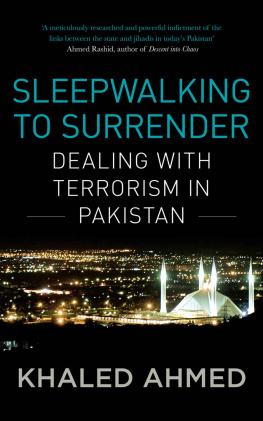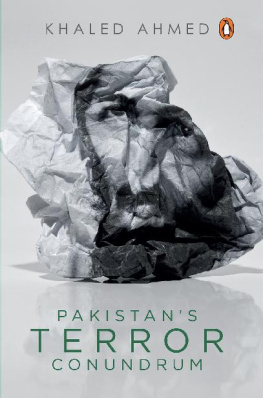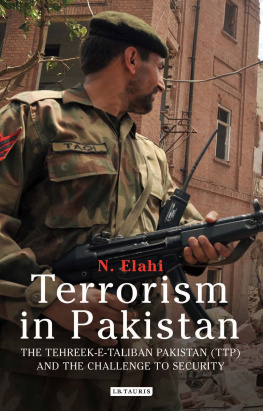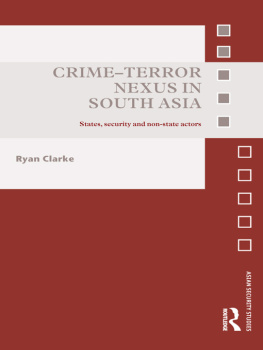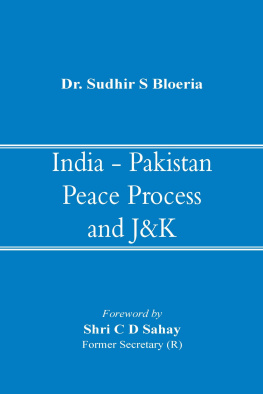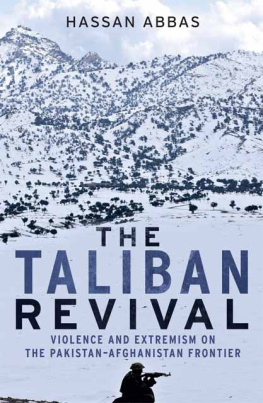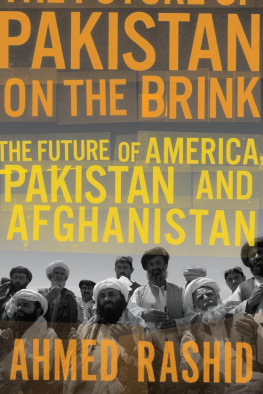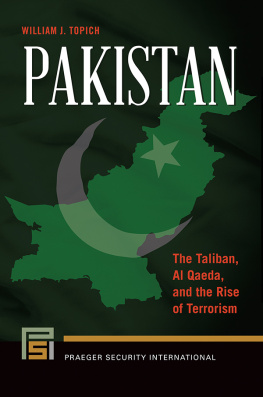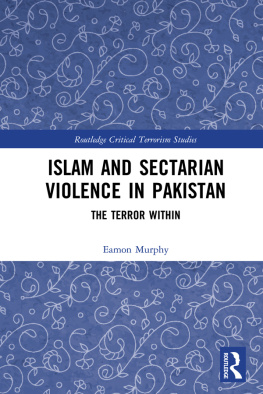1
Introduction
Terrorism, Ideology and the Crumbling State
In October 2013, after the Taliban killed a major general of the Pakistan army in Dir and blew up eighty Christians in Peshawar, Pakistan was busy rationalizing the situation in favour of peace talks with them. A judge in Peshawar, in an effort to ingratiate himself into the Talibans good books, helpfully questioned: Why is modern banking still allowed in Pakistan? He was within his rights because the sharia Appellate Bench of Pakistans Supreme Court had indeed banned it. Banking, as we know it today, is banned in Islam, so is insurance and the state lottery, but Pakistan is still carrying on with them. Nor is the judge the only one questioning such practices; al-Qaedas Ayman al-Zawahiri condemns Pakistan for not banning modern banking.
The religious parties, unable to win elections, have always drawn their strength, not from the elected assemblies, but from al-Qaeda and the Taliban, as the latter kill in the name of Islam. (The exceptions among religious groups are the Shiites and Barelvi Sunnis, who are routinely butchered by the Taliban as deviants from the faith.) In unison, they defended dialogue with the killers who didnt want to be distracted from terrorism as they prepared for talks with the Nawaz Sharif government, fortified by an all-party consensus on peace talks instead of war against terrorism. The National University of Science and Technology (NUST) at Islamabad prophylactically started fining girl students who wore jeans on campus.
The Council of Islamic Ideology (CII), constitutionally mandated to guide the legislature, refused to award death to those who make wrongful accusations under the blasphemy law, which gives death as minimum punishment to those who insult the Holy Prophet (PBUH). It also piously deemed DNA evidence as secondary, not primary, proof in cases of rape, where the perpetrator simply cannot be punished because of the conditionality of four eyewitnesses to the forcible sexual assault. It recommended that earlier legislation under hudood (Quranic punishments) correcting this legal irrationality, be rolled back.
Muslims produce their best men when they are not ruling the state they live in. The most gifted intellectuals, like Muhammad Iqbal and Muhammad Abduh, survived only under the British Empire because their works were too groundbreaking for their co-religionists. When Muslims acquire a state they go into a kind of recidivist trance: give us utopia or nothing. They make noises about the modern Islamic state but the moment such a state is created, they start squabbling over it. Despite their denial of theology, this is all they have when thinking of the state. They deny the presence of a clergy in Islam but their society is crawling with clergy, and despite avowals to the contrary, they slavishly follow their frozen-in-time medieval doctrines, savagely discriminatory to women and non-Muslims.
The other thing that has Muslims in a tizzy is education. If you want to educate yourself, never ask a Muslim what to do. He will accept modern education, saying the Quran is for all times, including modern times, and therefore allows modern education. But he baulks the moment you say secular education. The age of reason, which gave us modern education, is not his cup of tea because what he understands by reason is deductive logic. He accepts the discipline of economics while ideologically rejecting the concepts of banking and savings. He is literalist, therefore he can be a banker without accepting the institution he serves.
In physics too, Pakistans most gifted, UK-educated nuclear scientist, Sultan Bashiruddin Mahmood, for instance, believed in the existence of jinns. He actually read a paper to General Zia, which said he could produce electricity for all of Pakistan from one tamed jinn. The nuclear physicist, Pervez Hoodbhoy, who is consistently criticized by Pakistans religious establishment, says Muslims avoid soiling their faith by staying away from the theory of science and learn it as mere technology. They steal science to make nuclear weapons in Pakistan and Iran. When Hoodbhoy condemned a Muslim scientist who claimed he was running his car on water, for being a crook, no one really believed him.
The world thinks Muslims are poor and crazy because their states have abysmal records in education. If you think you can improve a Muslim through education, then take a look at the curricula in Pakistan. Any attempt to tone down references to war as a way of life by the provincial authority is attacked by the clergy, after which the media starts growling, sending the education minister scurrying back to texts mandating jihad for all Muslims. This is a state that has defamed itself through proxy wars it used to call jihad.
Any change in the ideological content of textbooks is criticized, amid naked threats, till the removed lessons are reinstated. This happened, for instance, in the province of Khyber Pakhtunkhwa in Pakistan, as if in preparation for the rule of the Taliban. Muslim youth are not iconoclastic because they are born in modern times; their aggression is regressive because they are iconoclasts of modernity. Radical in Islam is the act of going back; the same goes for revolution. In Arabic, modern (jadeed) is derived from jadd meaning grandfather. The more educated a Muslim is, the more dangerous he is for his country and the rest of the world. Because of the content of indoctrination in syllabi, the French writer, Olivier Roy, is less dismissive of Muslims as they come to grips with the modern state and its current system of governance, which is democracy. He says Islamists are no longer able to brush aside the democratic process simply because it is not a caliphate as they envisage it. Looking at the Muslim Brotherhood in Egypt, he says they have to accept the premier institution of democracythe electionsto retain support among the people. He mentions the Ikhwan in Egypt, the Ennahda in Tunisia and the Islah in Yemen. He thinks the acceptance of democracy by Islamists is a new phenomenon which should inspire hope.
But the Egyptians got scared of the elected Brotherhood president, Mohammed Morsi, and his sharia which the Ikhwan pledged on placards saying Naamlil Sharia (yes to sharia!), and staged the biggest rally in human history against him to force the army to intervene. In Turkey, the modern Kemalist state is being rolled back because Prime Minister Erdogan is keener than even Fethullah Gulen, the expat genius whose shadow presides over Turkeys retrogression, to enforce sharia. Iran has democracy if elections denote democracy; and it is now thirty years since clerical rule started making the people think they are hardly living under a democracy. And sharia keeps getting more stringent: signs are Pakistans sharia could have had to be beefed up had the peace-talks with the Taliban gone ahead.

